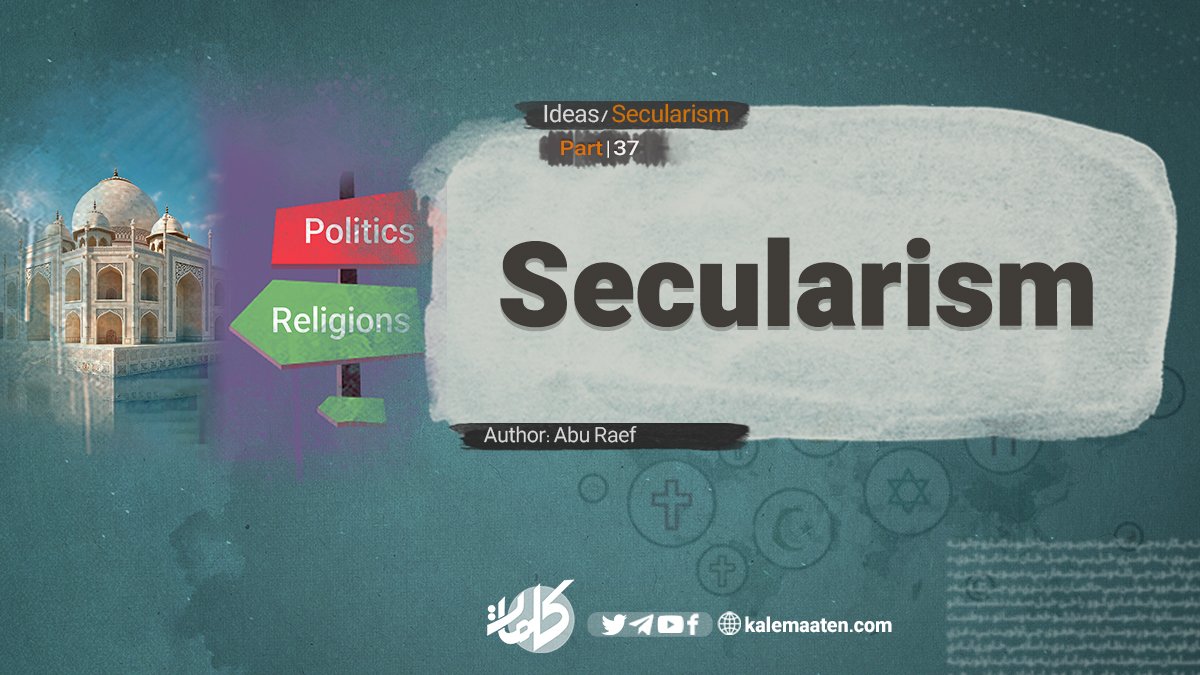Author: Abu Raef
Secularism (Part 37)
Secularism and the Islamic World
After Western society moved away from Christianity and embraced secularism, religion and its teachings lost their role in guiding daily life. This transformation led the West to endeavor to divert other societies from religious teachings and propagate the separation of religion from politics. Their motive was driven by the recognition that Islamic society possessed a vital and dynamic aspect of faith that had been absent in Europe for years. This aspect is the “vivacity and responsiveness” of Islam to human needs and desires in all eras.
However, it was not long before the Islamic Ummah began to suffer from deviance, weakness, and cultural backwardness. The community became enamored with worldly pleasures and fearful of death, which led to the abandonment of Islamic jihad and resulted in profound humiliation and defeat. This retreat fostered significant practical, behavioral, and ideological deviations within Islamic society.
These deviations, coupled with a profound backwardness in the Islamic world, instigated two unfortunate occurrences: 1) a “scientific stagnation” that suffocated all aspects of Islamic life during a time when Europe was shaking off its past and making strides in scientific discovery; and 2) the “material” and spiritual frailty of Islamic nations, which rendered them vulnerable and easy targets for Western powers, who consumed these nations piece by piece, ultimately claiming control over holy sites as well.
In summary, the rise of secularism in the Islamic world can be attributed to two crucial factors: 1) the deep “deviation” within Islamic society and 2) the “sinister plans and agendas of Christians and Jews” aimed at misleading the Islamic community.
Manifestations of Deviance in Islamic Society
Muslims have experienced profound deviations in all areas of life, but the most significant has been in belief and the concept of divinity. Many Muslims abandoned obedience to Allah and were swayed by governments and leaders lacking religious commitment and sound beliefs, resulting in heresies and both intellectual and practical deviations.
During the era of Western invasion and the subsequent secularization of Islamic society, three types of governments emerged: the “Mongol” rule in India, the “Safavid” rule in Persia, and the “Ottoman” rule around the Mediterranean. The Safavid government predominantly bore the name of Islam; however, its governance focused on the interests and whims of fanatical Shia scholars, with its rulers primarily concerned with waging war against the Sunni Ottoman Empire.
Aside from the reign of Sultan Aurangzeb, the Mughal Empire displayed ignorance regarding religion and its teachings, leading to beliefs intertwined with numerous superstitions and misconceptions. This ignorance, coupled with the Muslims being a minority in India, left them ill-equipped to resist the British abolishment of Islamic rule in the region.
The Ottoman Empire, noted for its significant contributions to the spread of Islam in various corners of Europe, faced two major challenges: 1) the “hereditary nature of the caliphate,” and 2) the “lack of ijtihad” (independent reasoning) and failure to adapt to contemporary jurisprudential issues. Islamic Sharia is intended to provide a comprehensive methodology encompassing all aspects of life throughout the ages, persisting until the Day of Judgment without question.
Unfortunately, during the Ottoman period, the door to ijtihad was effectively closed concerning new and emerging matters. Islamic jurisprudence failed to address contemporary challenges adequately. Those who claimed to be scholars considered religion incompatible with science and knowledge, leading to acceptance of secularism.
Additionally, the Ottoman Islamic government required a well-trained and organized military. Scholars and religious leaders, however, were unable to address these military needs, prompting the Ottomans to seek assistance from Europeans to train their military. Consequently, teachers from Germany, France, and Sweden were invited to instruct and modernize the Islamic army, marking a pivotal moment in Islamic history where infidel instructors led military training.
Furthermore, administrative divisions and the regulation of duties among judges and educators were significantly influenced by Western examples, creating fertile ground for the test of secularism. While these measures, termed “regulations,” did not hold the same weight as Sharia law, they gradually facilitated the encroachment of secularism within the Ottoman governance structure.



